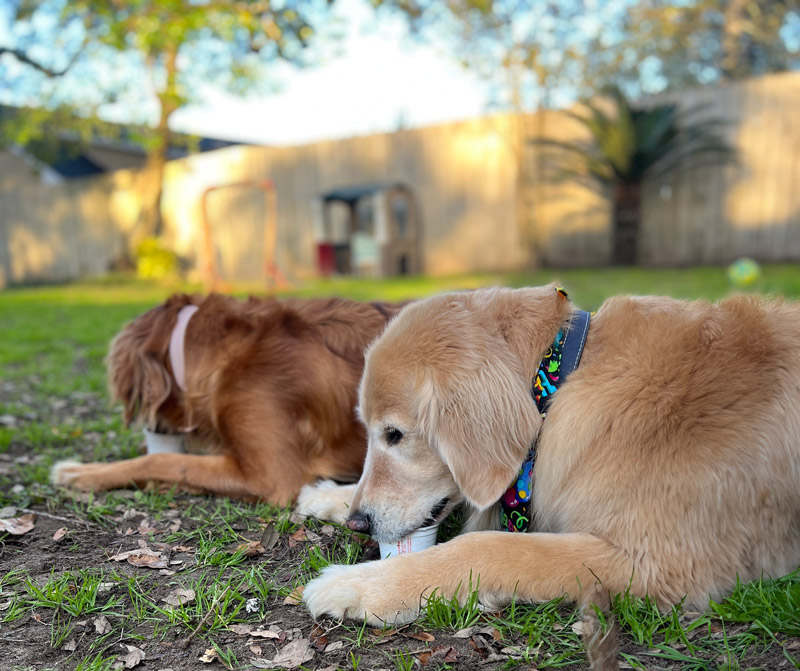Who Pays for a Dog Bite Injury?
One of the most common questions I hear from potential clients is, “Who pays for a dog bite?” In many cases, the dog owner’s homeowners’ insurance policy will cover the costs of medical bills and other damages caused by the bite. However, as I mentioned earlier, many insurance companies are now placing strict limits on coverage for dog bites or excluding them from policies altogether. If this is the case, the dog owner may be personally liable for covering your damages, including medical bills, lost wages, and emotional trauma.
Here’s what typically happens in a dog bite case:
- Insurance Claim: If the dog owner has insurance that covers dog bites, we’ll file a claim on your behalf. This can cover medical expenses, lost wages from missed work, pain and suffering, and any other damages related to the bite.
- Personal Liability: If the owner’s homeowner’s insurance policy does not cover the bite, we may need to pursue the dog owner personally for compensation. This could involve negotiating a settlement with them directly (which I have done successfully) or filing a lawsuit to recover damages.
At the end of the day, you shouldn’t be left to bear the financial burden of an injury caused by someone else’s negligence. Whether it’s through insurance or personal liability, I can help you recover fairly from the bite.
How Long After a Dog Bite Does Infection Set In?
Another common question that worries my clients is, “How long after a dog bite does infection set in?” Without immediate medical treatment, dog bites can quickly lead to infections due to the bacteria in a dog’s mouth. Infection can begin to set in within 24 to 72 hours after the bite occurs. That’s why it’s incredibly important to seek medical attention immediately after being bitten, even if the wound seems minor.
Common symptoms of infection from a dog bite include:
- Redness and swelling around the bite area
- Fever or chills
- Pus or discharge from the wound
- Increasing pain
If you notice any of these symptoms, see a doctor right away. An untreated infection can lead to more serious complications like cellulitis or sepsis.
A final word on the importance of getting medical treatment early: some people are a bit too self-reliant and figure it’s easier to treat a bad wound at home than to go see a doctor. Getting proper medical attention is not only important to prevent infection and to reduce the chance of scarring, but there is another important reason to do so: Insurance companies will view your delay in getting medical treatment as evidence that your injury was very minor. And if your case goes to trial, a jury might view things the same way.
So head on over to one of the dozen or so urgent care clinics in Mount Pleasant (just google urgent care 29464 29466) to find one near you that’s open. I promise it will be a worthwhile trip.
How Do You Get Fair Compensation for a Dog Bite Injury?
In South Carolina, dog bite victims can seek fair compensation for a variety of damages, including:
- Medical Expenses: This includes hospital bills, surgeries, medication, and any future medical care related to the bite. Even broken bones from falling down after an aggressive dog knocks you down.
- Lost Wages: If you had to take time off work to recover from your injuries, you can seek compensation for the income you lost.
- Pain and Suffering: This includes both the physical pain and the emotional distress caused by the dog bite. Emotional trauma is particularly significant for children who have been bitten, as it can lead to lifelong fear of dogs or other animals.
- Permanent Scarring or Disfigurement: Dog bites often leave permanent scars, which can affect a person’s confidence and self-esteem. Evidence of permanent scarring, which can be established through expert medical testimony, can significantly increase the value of your legal claim.
- Emotional Distress: Dog bites can cause PTSD, especially in cases where the victim feared for their life or experienced a particularly violent attack.
- Punitive Damages: In some cases, you may also be able to seek punitive damages against the dog owner if their actions were particularly reckless, such as letting a dangerous breed like a pit bull, rottweiler, or mastiff roam free despite knowing the real risk that it may bite someone. Or if there is a history of the dog biting other people. So one of the first things that I do when handling a dog bite case is to subpoena records from the veterinarian to find out more about the animal’s histo




